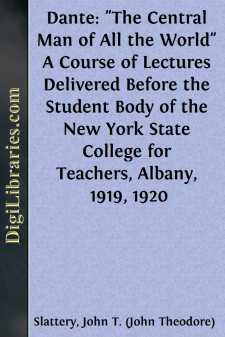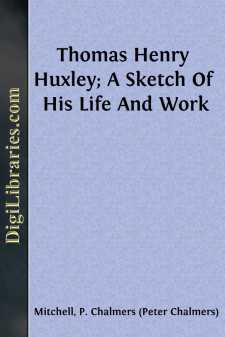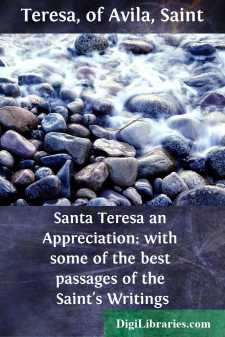Non-Classifiable
- Non-Classifiable 1768
Non-Classifiable Books
Sort by:
INTRODUCTION. The money to found a British Museum was raised by a lottery in the middle of the last century. Sir Hans Sloane having offered his books and museum of natural history to Parliament, for less than half its value (20,000£.), it was purchased, together with the famous Harleian and Cottonian MSS., and deposited in Montague House, Bloomsbury, which had been bought of the Earl of Halifax, for...
more...
DANTE AND HIS TIME To know Dante we must know the age which produced Christianity's greatest poet, he whom Ruskin calls "the central man of all the world, as representing in perfect balance the imaginative, moral and intellectual faculties, all at their highest." Other writers are not so dependent upon their times for our clear understanding of their books. Dante to be intelligible to the...
more...
by:
Fay-Cooper Cole
HABITAT. The west coast of Davao Gulf between Daliao and Digos is dotted with small villages, the inhabitants of which are largely Bagobo who have been converted to the Christian faith and have been induced to give up their mountain homes and settle in towns. Back of this coast line rise densely timbered mountain peaks, lateral spurs from which often terminate in abrupt cliffs overlooking the sea. From...
more...
CHAPTER I. Importance of Marie Antoinette in the Revolution.—Value of herCorrespondence as a Means of estimating her Character.—Her Birth,November 2d, 1755.—Epigram of Metastasio.—Habits of the ImperialFamily.—Schönbrunn.—Death of the Emperor.—Projects for the Marriage ofthe Archduchess.—Her Education.—The Abbé de Vermond.—Metastasio.—Gluck. The most striking event in the annals...
more...
CHAPTER I FROM SCHOOL TO LIFE-WORK Birth—Parentage—School-days—Choice of Medical Profession—Charing Cross Hospital—End of Medical Studies—Admission to Naval Medical Service. Some men are born to greatness: even before their arrival in the world their future is marked out for them. All the advantages that wealth and the experience of friends can bring attend their growth to manhood, and...
more...
by:
Maxwell Armfield
PREFACE When this book was projected, some one asked, "What is there to say about Browning's heroines beyond what he said himself?"—and the question, though it could not stay me, did chill momentarily my primal ardour. Soon, however, the restorative answer presented itself. "If there were nothing to say about Browning's heroines beyond what he said himself, it would be a bad...
more...
by:
of Avila Teresa
APPRECIATION AND INTRODUCTION With a view to the work of my classes this session, I took old Abraham Woodhead’s two black-letter quartos with me to the Engadine last July. And I spent every rainy morning and every tired evening of that memorable holiday month in the society of Santa Teresa and her excellent old-English translator. Till, ever, as I crossed the Morteratch and the Roseg, and climbed...
more...
Cynarctus fortidens new species Holotype.—Right maxilla bearing P3, P4, and M1, No. 11353 KU; bluff on west side of Turkey Creek, approximately 75 feet above stream, Raymond Farr Ranch, Center NE, NE, S. 48 Blk. C-3, E. L. and R. R. Ry. Co., Donley County, Texas [approximately 6.5 miles north and 1 mile east of Clarendon], Clarendon fauna, Early Pliocene age. Obtained by W. W. Dalquest, on June 25,...
more...
CHAPTER I. NATURE OF THE ARGUMENT.Aim and line of argumentMy aim is to criticise from a purely English point of view the policy of Home Rule, or the proposal to create a more or less independent Parliament in Ireland; and as a result of such criticism to establish the truth, and develop the consequences, of this proposition—namely, that any system of Home Rule, whatever be the form it takes, is less...
more...
Extent and condition of the fishery in 1895 and 1896. While the number of nets operated in these two years was practically the same, the catch in 1896 was much greater than in 1895, and was one of the largest in the recent history of the fishery. A comparatively large number of fishermen reported that they took more salmon than in any previous year. The salmon, however, were smaller than usual, and...
more...











